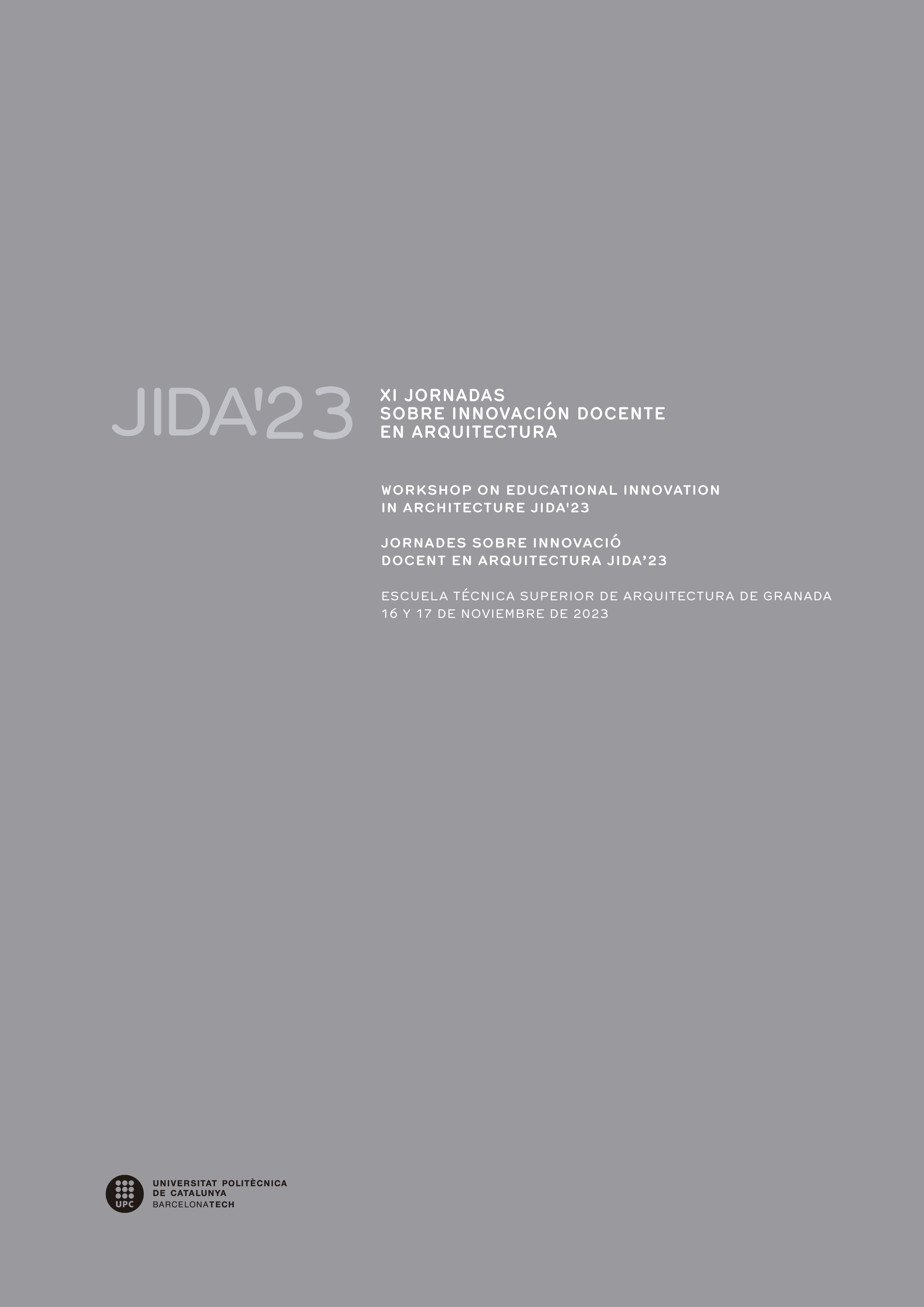Urban Co-Mapping: exploring a collective transversal learning model
DOI:
https://doi.org/10.5821/jida.2023.12306Keywords:
collective mapping, participatory urbanism, experimental workshop, collaborative learning, mapping pedagogyAbstract
As mapping pedagogy has shifted significantly the past era, collective mapping emerged as alternative approach. It is a means to debate, illuminate, challenge, and imagine different spatial experiences and understandings within a broader collaborative effort and in a more democratic way. ‘What we teach’ in mapping scholarship has become more critical and collaborative over the years, but ‘how we teach’ it can still improve. Therefore, we find it relevant to reflect on how transversal learning practices and collective methodolgies can further enhance mapping pedagogy. This article draws from experiences in the 2022 and 2023 Urban Notes courses (an in-situ urban sketching elective) and discusses the outcomes of student-organized collective mapping experiments. The debate centers on the students’ mapping results and survey responses. Overall, this article highlights how students were able to demonstrate creative and critical understandings of maps and how collective learning methods enhanced their overall architectural and planning educations.
References
Barnes, Trevor & van Meeteren, Michiel. 2022. «The great debate in mid-twentieth century American geography: Fred K Schaefer vs. Richard Hartshorne». In The Routledge Handbook of Methodologies in Human Geography, edited by Sarah Lovell, Stephanie Coen & Mark Rosenberg, 9-23. London: Routledge.
Bunge, William. 1971. Fitzgerald: Geography of a Revolution. University of Georgia Press.
Cosgrove, Denis. 1999. «Introduction: Mapping Meaning». In Mappings, edited by Denis Cosgrove, 1-23. Reaktion.
Debord, Guy. 1957. Guide psychogéographique de Paris. Denmark: Permild & Rosengreen.
Eckert, Max. 1907. «Die Kartographie als Wissenschaft». Zeitschrift der Gesellschaft fur Erdkunde zu Berlin, 213-227.
Gualini, Enrico. 2015. «Conflict in the City: Democratic, Emancipatory-and Transformative? In Search of the Political in Planning Conflicts». In Planning and Conflict, edited by Enrico Gualini, 3-36. Routledge.
Iconclasistas. 2013. Manual of Collective Mapping: Critical Cartography Resources for Territorial Processes of Collaborative Creation. Buenos Aires: Iconclasistas.
Jacob, Christian. 1996. «Toward a Cultural History of Cartography». Imago Mundi, 48: 191-198.
Kitchen, Rob & Dodge, Martin. 2007. «Rethinking maps». Progress in Human Geography, 31(3): 331-344.
Lynch, Kevin. 1960. Image of a City. Cambridge: MIT Press
Raisz, Erwin. 1938. General Cartography. McGraw-Hill Book Company.
Saija, Laura & Pappalardo, Guisy. 2018. «An Argument for Action Research-Inspired Participatory Mapping». Journal of Planning Education and Research, 42(3): 375-385.
Seve, Bruno, Redondo Domínguez, Ernest, y Muxi Martínez, Zaida. (2023) «Apuntes urbanos. Dibujo consciente y participativo», EGA Expresión Gráfica Arquitectónica, 28(48), 226-239. doi: 10.4995/ega.2023.16878.
Wood, Denis. 2010. Rethinking the Power of Maps. The Guilford Press.






















